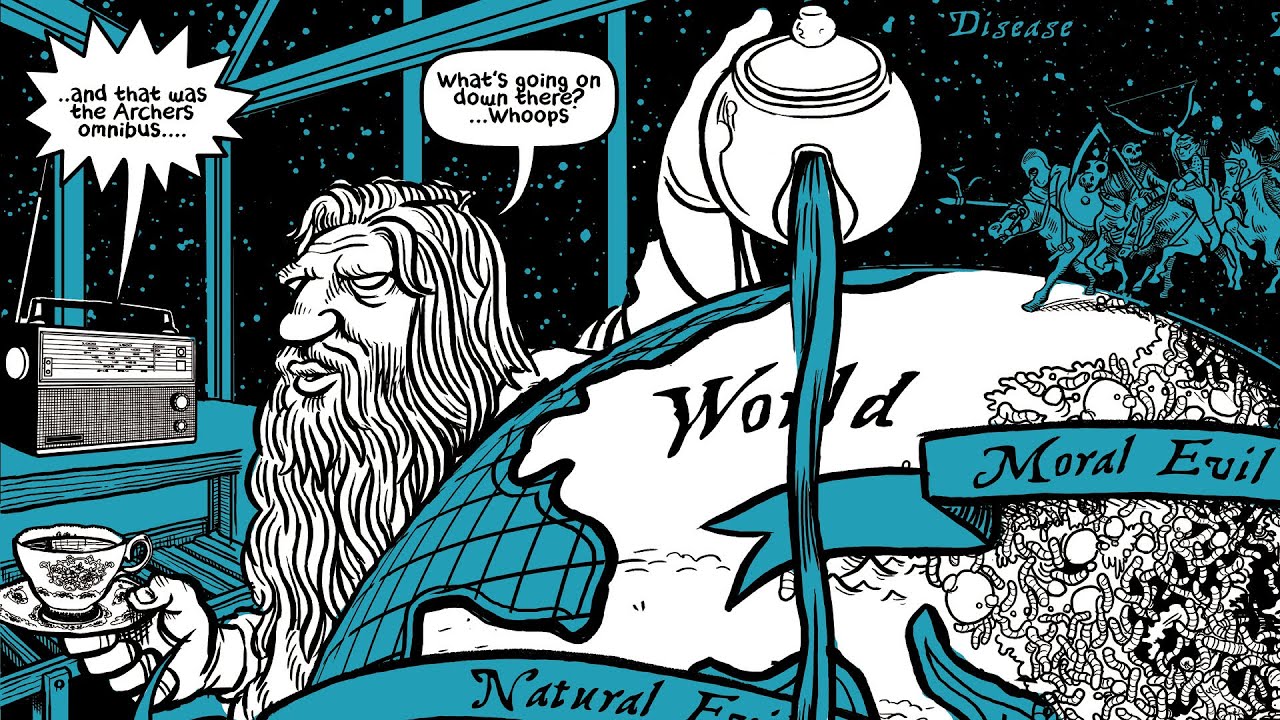The Free Will Defence: A Good God Vs The Problem Of Evil
Unleash Your Creative Genius with MuseMind: Your AI-Powered Content Creation Copilot. Try now! 🚀
In a world teeming with moral atrocities – wars, torture, rape, murder – a disheartening and undeniable reality stares us in the face. Every day, in every corner of the globe, individuals deliberately inflict pain upon their fellow humans and even derive pleasure from the suffering of others. On top of this moral evil, we grapple with the scourge of natural disasters, such as disease, famine, floods, and earthquakes. These events are nothing short of terrible, yet they challenge our belief in the existence of an all-knowing and all-powerful benevolent God. This quandary is what philosophers have aptly named "the problem of evil."
If we postulate the existence of a good God, one who possesses omniscience and omnipotence, how can we reconcile the coexistence of such immense suffering with this divine entity? A benevolent God, being all-knowing, would certainly be aware of the ceaseless torment plaguing humanity. Furthermore, an all-powerful God could effortlessly intervene to prevent such malevolence. So, why do the thunderbolts not come crashing down to put an end to our anguish? Many atheists have seized upon this apparent contradiction, using the prevalence of evil as irrefutable evidence against the existence of a good God, or even any god at all.
The Free Will Defense: Unveiling the Paradox
The problem of evil is indeed a formidable hurdle for those who ardently believe in the existence of a higher power. In response, some theologians have formulated the "Free Will defense." This line of reasoning contends that while God could have created humanity to be unfailingly virtuous, devoid of the capacity to harm one another, such a design would render us mere automatons, devoid of free will. In this hypothetical world, human actions would be predetermined, like those of pre-programmed robots.
However, the proponents of the Free Will defense argue that the existence of evil is an inherent consequence of our freedom to choose. They suggest that it is far more preferable to grant humans free will, even if it entails the genuine risk that some will use it for nefarious purposes. Essentially, it is the age-old debate between the beauty of choice and the security of a world where we are stripped of it. Victims of history's vile tyrants, such as Caligula, Genghis Khan, Hitler, Stalin, Mao Zedong, Pol Pot, Saddam Hussein, and the many others who have wielded power with cruelty, might vehemently contest this assertion.
Yet, even if we accept the Free Will defense as a plausible explanation for moral evil, it leaves us with an unresolved issue – that of natural evil.
Confronting the Enigma of Natural Evil
Natural evil, with its stark contrast to moral evil, stands as an enigmatic challenge to our understanding of the universe. While moral evil emanates from the choices and actions of human beings, natural evil is an indiscriminate force, manifested in disease, famine, floods, and earthquakes. It is not the result of malevolence but rather an inherent aspect of the natural world.
The Free Will defense, which seeks to justify the existence of moral evil, fails to elucidate why natural disasters and diseases afflict even the most innocent and virtuous. It appears capricious and arbitrary, devoid of any connection to human choices or actions. Herein lies the conundrum: how can a benevolent and omnipotent God allow such rampant suffering, irrespective of the moral choices of individuals?
The Uncharted Territory of Faith
In the face of these profound questions, we find ourselves in uncharted territory. The problem of evil challenges the core of our faith and our understanding of the universe. We must wrestle with the inherent contradictions and paradoxes that accompany our existence.
In the end, the problem of evil remains a mystery, one that continues to confound even the greatest minds throughout history. The tension between the belief in a benevolent, all-knowing, and all-powerful God and the existence of unspeakable suffering is a profound philosophical and existential dilemma. It compels us to ponder the boundaries of human understanding, and it reinforces the idea that life is a complex interplay of light and shadow, where meaning emerges from the very existence of this paradox.
As we grapple with the problem of evil, we may find solace in the words of the great minds who have contemplated this enduring enigma. Perhaps, in the pursuit of answers, we will uncover new dimensions of our existence, revealing the interconnectedness of good and evil, and the profound importance of our choices in shaping the world we inhabit. Until then, we must navigate the labyrinth of existence with resilience, curiosity, and an unwavering commitment to exploring life's greatest mysteries.
